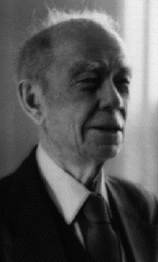May 28: Corliss Lamont
Corliss Lamont (1902)
It was on this date, May 28, 1902, that philosopher, author and poet Corliss Lamont was born in New York. Wealthy from his father's Wall Street investments, he was educated at Harvard and Columbia, taking his Ph.D. in philosophy from Columbia in 1932. Nevertheless, during his long and eventful life, Lamont was a humanist leader and a tireless worker for world peace and civil liberties, serving as director of the ACLU for 22 years. He wrote sixteen books, the most famous of which are The Philosophy of Humanism and The Illusion of Immortality.
It was Lamont who said, "Since Humanism as a functioning credo is so closely bound up with the methods of reason and science, plainly free speech and democracy are its very lifeblood. For reason and scientific method can flourish only in an atmosphere of civil liberties."
Lamont taught philosophy at Columbia, Harvard, Cornell, and the New School for Social Research, and once wrote, "I think... that philosophy has the duty of pointing out the falsity of outworn religious ideas, however estimable they may be as a form of art. We cannot act as if all religion were poetry while the greater part of it still functions in its ancient guise of illicit science and backward morals...."
In his Philosophy of Humanism, Lamont wrote,
Supernatural entities simply do not exist. The nonreality of the supernatural means, on the human level, that men do not possess supernatural and immortal souls; and, on the level of the universe as a whole, that our cosmos does not possess a supernatural and eternal God. ... God, once imagined to be an omnipresent force throughout the whole world of nature and man, has been increasingly tending to seem omniabsent. Everywhere, intelligent and educated people rely more and more on purely secular and scientific techniques for the solution of their problems. As science advances, belief in divine miracles and the efficacy of prayer becomes fainter and fainter.
He had no use for the idea of an immortal human soul. Lamont demolished the argument that the body is merely a "transmission apparatus for the supernatural soul":
A severe injury to the head, for instance, may change an ordinarily cheerful man into a sullen and morose one subject to sudden fits of homicidal mania. If the brain and body are simply the instruments of the soul, we have to say in such a case that this personality is really still brimming over with joy and benevolence, but that unfortunately these sentiments can only express themselves in dark glances, in peevish complaints and in violent attacks. ... The consequences of the instrument theory are absurd. Throughout aging, specific mental abilities may be irrevocably lost one-by-one, yet if instead of the senses being destroyed separately and gradually by disease or accident, they are all simultaneously destroyed by death, the dualistic immortalist asks us to believe that they will go on in some other state with unimpaired, if not greatly improved, capabilities!
Lamont cherished and fought for freedom in the US through the National Emergency Civil Liberties Committee, and won victories, even during the McCarthy witch-hunts and the HUAC hysteria, for freedom of speech and association, equality and labor rights, and for the peoples' right to know. He even got the CIA to apologize for reading his mail! Corliss Lamont died at his home in New York on 26 April 1995, at age 93.
Originally published May 2003 by Ronald Bruce Meyer.


